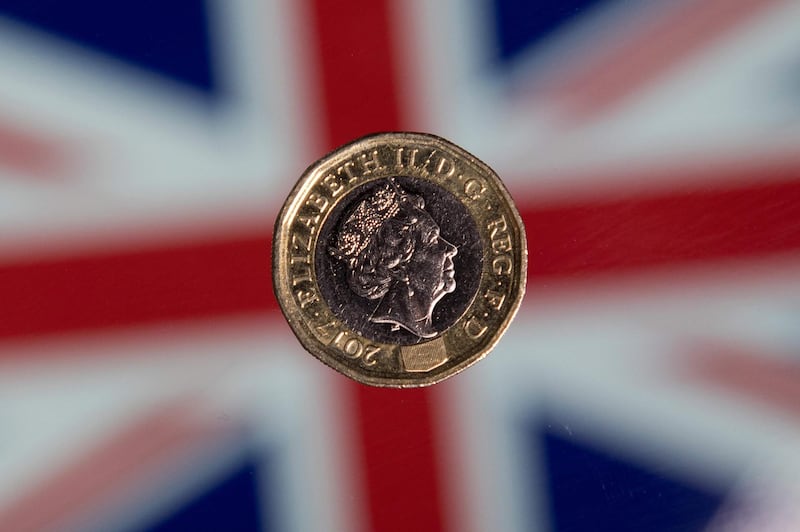The British pound dived on Tuesday after German Chancellor Angela Merkel warned that a Brexit deal was "overwhelmingly unlikely", further stoking fears of a disorderly and costly departure from the EU.
Mrs Merkel told Boris Johnson, the British Prime Minister, that a deal was doomed to fail unless London agreed to keep Northern Ireland, which borders EU member Ireland, in the bloc's Customs union, a Downing Street source said.
The host of next week's summit in Brussels, European Council President Donald Tusk, accused Mr Johnson of trying to shift the blame for the failure of the Brexit talks.
"Markets are having to focus on the various potential outcomes which are now imminent," Interactive Investor analyst Rebecca O'Keeffe told AFP.
"A deal looks very unlikely unless the EU blinks first.
"For many, the word of the PM is government policy, hence the global market is moving towards pricing in an ever-greater chance of a no-deal."
Losses were exacerbated by official data showing that British productivity fell at its fastest rate in five years in the second quarter of 2019.
Meanwhile, stock markets on both sides of the Atlantic posted losses on growing investor doubts over the chances of success in this week's China-US trade talks.
Losses for London stocks were limited thanks to the weak pound but Paris and Frankfurt fell more than one per cent.
On Wall Street, the Dow Jones index was also down more than one per cent in late morning trading.
There had been a general feeling in recent weeks that a solution to the long-running US-China tariffs saga might be found, providing some much-needed support to equities at a time of worsening economic data.
Chinese Vice Premier Liu He is due to meet US trade representative Robert Lighthizer and Treasury Secretary Steven Mnuchin on Thursday.
But observers warn it is unlikely that progress will be smooth, with reports this week saying China cut back the number of areas it is willing to discuss.
This suggests Beijing senses weakness in the White House as US President Donald Trump deals with impeachment proceedings and a slowing economy.
The trade meeting comes just over a week before a new round of tariffs is due to be imposed on China.
"There is a feeling the trade talks are over even before they have begun," said analyst David Madden, of CMC Markets UK.
Further dampening sentiment were the comments by the IMF's new head, Kristalina Georgieva, that trade disputes had helped to push the global economy into a "synchronised slowdown".
"Now we see that they are actually taking a toll," Ms Georgieva said.
Pound/dollar: DOWN at $1.2204 from $1.2293 at 2100 GMT
Euro/pound: UP at 89.72 pence from 89.25 pence
Euro/dollar: DOWN at $1.0948 from $1.0971
Dollar/yen: DOWN at 107.04 yen from 107.26 yen
London: FTSE 100: DOWN 0.8 per cent at 7,143.15 points (close)
Paris: CAC 40: DOWN 1.2 per cent at 5,456.62 (close)
Frankfurt: DAX 30: DOWN 1.1 per cent at 11,970.20 (close)
Euro Stoxx 50: DOWN 1.0 per cent at 3,438.43
New York: Dow: DOWN 1.1 per cent at 26,186.56
Tokyo: Nikkei 225: UP 1.0 per cent at 21,587.78 (close)
Hong Kong: Hang Seng: UP 0.3 per cent at 25,893.40 (close)
Shanghai: Composite: UP 0.3 per cent at 2,913.67 (close)
Brent North Sea crude: DOWN 0.8 per cent at $57.90 per barrel
West Texas Intermediate: DOWN 0.8 per cent at $52.33








